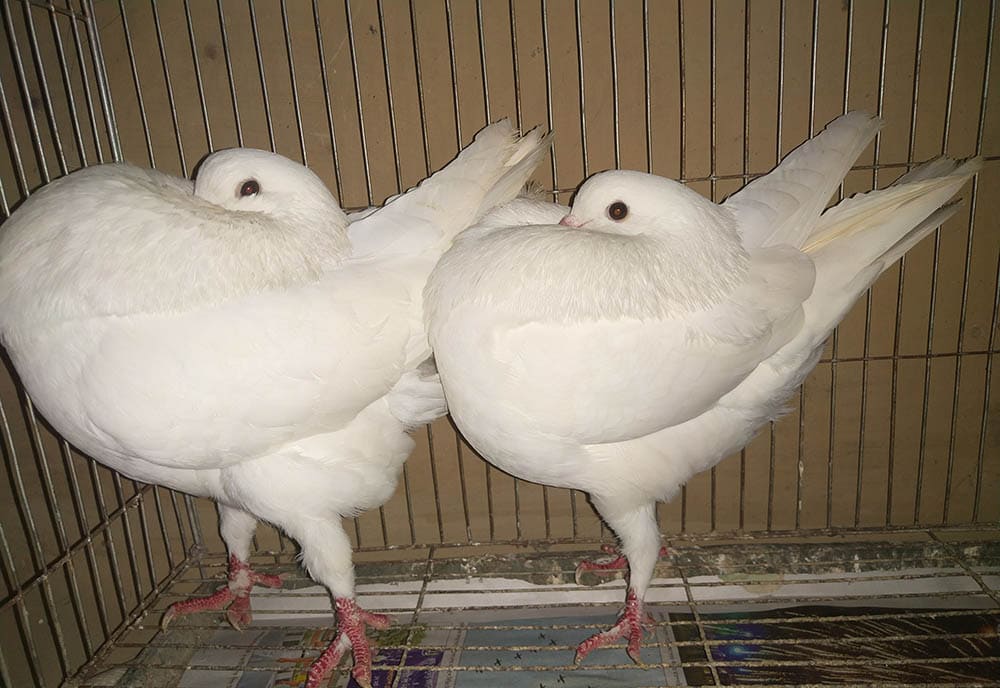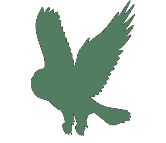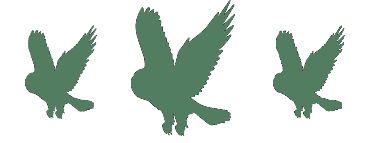Why Do Birds Bob Their Heads? Exploring Bird Behavior
Last Updated on

If you love birds, you probably know how to recognize their traits and habits. Although all birds are unique, many have similar behavioral patterns, like head-bobbing. This pattern occurs in both wild and pet birds, but the reasons behind it are not the same for both. Head-bobbing might look strange, but there are many causes of this habit.
Today we will talk about why birds bob their heads and provide more information about this unusual habit.

Head-bobbing in birds
Head-bobbing is a natural behavioral pattern that begins in the birds’ early days. Some baby birds nod their heads to express hunger and show their parents that they need food. While head-bobbing has a function for wild birds, it’s more of a sign of gratification, happiness, or even boredom for pet birds. Check out the most common causes of head-bobbing in birds below.
Wild birds
As we said above, head-bobbing has various functions for wild birds, and it helps them in daily activities. For example, pigeons and chickens bob their heads because that keeps them stable and helps them stabilize their vision. They have difficulties keeping their gaze sharp, so head-bobbing allows them to fixate on their prey.
Although we refer to that as head-bobbing, that’s not precisely what pigeons and chickens are doing. Instead, they are moving their heads and locking them in place while their body is catching up. This movement allows them to have enough time to identify objects around them.
Birds like owls have eyes fixated on one position, so they frequently bob their heads to see and catch their prey. Also, many bird breeds do this to track their environment and better see their surroundings. You can also notice head-bobbing in birds like cranes, herons, and storks.
Some birds also do this to attract mating partners and bob their heard as a sign of anger or nervousness.
Pet birds
On the other hand, pet birds don’t need to hunt, and they express head-bobbing for different reasons. Parrots, parakeets, and budgies also bob their heads. Below you can see frequent causes of head-bobbing in pet birds.
Attention
Carefully observe the behavioral patterns of your pet bird so that you can know what it needs. Pet birds will bob their heads to seek attention from their owners. If your pet bird frequently does this, it might be trying to tell you something.
To show pleasure or discomfort
Pet birds can also bob their heads when expressing pleasure or discomfort. You will probably notice this habit when your bird is unpleased when you leave it alone for long periods—or when you provide it with tasty treats!
Boredom
Of course, some pet birds bob their heads simply due to boredom. If your birdie lacks fun activities to do, it will bob its head to entertain itself.


Is head-bobbing in birds normal?
Head-bobbing is a normal habit that many birds experience. Although it seems strange to us, it’s entirely natural for birds. It’s best to observe your bird’s behavior if head-bobbing occasionally happens to ensure your bird is healthy.
Something similar even happens to humans because our eyes jump from one place to the other. So instead of head-bobbing, we have rapid movements of our eyes that help us see better while we move through space.
Diseases that can cause head-bobbing
Head-bobbing can be a sign of health issues for some birds. Here are some of the most common health conditions that cause head-bobbing:
- Ataxia. This condition can lead to issues with the nervous and musculoskeletal systems. The damage results in the bird’s head, body, and limbs, so the birds don’t have proper movement control. Many birds that suffer from this disease cannot control their muscles, which leads to head-bobbing.
- Seizures. Another common health issue that causes head-bobbing is seizures. They can be a sign of tumors, infections, or trauma.
Do birds bob their head to music?
Pet birds love music and enjoy listening to fun tunes. Music has a positive effect on many birds, and they have the ability to distinguish different melodies, tunes, notes, and pitches.
When birds hear a melody they like, they will likely bob their heads, raise their chest, and move their feet.
You can play different genres of music to your bird until you figure out its taste in music.
- Related Read: Why Do Owls Bob Their Heads? 6 Reasons for This Behavior

In Conclusion
As you can see, this habit is quite common, and many birds experience head-bobbing daily. It helps them catch prey, notice when their young ones are hungry, or just express their feelings.
Featured Image Credit: Deep_shot, Shutterstock
About the Author Robert Sparks
Robert’s obsession with all things optical started early in life, when his optician father would bring home prototypes for Robert to play with. Nowadays, Robert is dedicated to helping others find the right optics for their needs. His hobbies include astronomy, astrophysics, and model building. Originally from Newark, NJ, he resides in Santa Fe, New Mexico, where the nighttime skies are filled with glittering stars.
Related Articles:
How to Clean a Refractor Telescope: Step-by-Step Guide
How to Clean a Telescope Eyepiece: Step-by-Step Guide
How to Clean a Rifle Scope: 8 Expert Tips
Monocular vs Telescope: Differences Explained (With Pictures)
What Is a Monocular Used For? 8 Common Functions
How to Clean a Telescope Mirror: 8 Expert Tips
Brightfield vs Phase Contrast Microscopy: The Differences Explained
SkyCamHD Drone Review: Pros, Cons, FAQ, & Verdict
